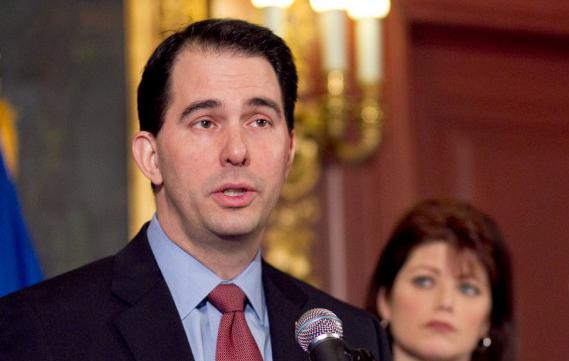Support for programs that benefit clean water initiative may undergo a $5.7 million as part of Gov. Scott Walker’s 2015-17 budget.
This cut from runoff pollution control methods, environmental groups say, is part of a larger reduction in funding for environmental programs within Walker’s budget.
Runoff pollution is a major problem for the state of Wisconsin, according to Steve Hiniker, executive director of 1000 Friends of Wisconsin.
“This is a huge cut, and it’s going to have a serious impact on communities and many farmers that rely on state assistance to undertake cleanup efforts,” Hiniker said.
Walker’s budget cuts funding from specific programs designed to control runoff pollution, which affects a lot of Wisconsin’s water, Hiniker said.
The Department of Natural Resources website names nonpoint source pollution, both urban and rural, as the leading cause of water pollution in Wisconsin.
Hiniker said phosphorus runoff is the main source of nonpoint pollution right now in Wisconsin, followed by farm manure runoff. These pollutants get into the water and can create major problems, like algae blooms and environmental dead zones. In Green Bay, there are zones without life because polluted runoff has eliminated oxygen supplies, Hiniker said.
“Runoff pollution is a huge problem, and it’s one that is very important to the people of this state,” Hiniker said. “The governor’s cuts are out of sync with so many of Wisconsin’s values.”
Amber Meyer Smith, director of government relations for Clean Wisconsin, said the funds that would be cut go to a variety of recipients trying to decrease their runoff pollution. Farms and urban centers alike benefit from these funds, Smith said.
Walker spokesperson Laurel Patrick said in an email to The Badger Herald that the budget includes $7 million in bonds for rural nonpoint pollution and $5 million in bonds for urban nonpoint pollution. An additional $7 million is allocated for soil and water resource management.
“The budget actually continues the same bonding levels for nonpoint pollution as in previous budgets,” Patrick said.
Patrick said the budget reduces available spending for the nonpoint pollution account because less revenue is coming into it. Additional funds will be transferred from the Agricultural Chemical Cleanup program to the nonpoint pollution account in order to remedy the deficit.
Walker’s budget also includes $250,000 each year for a new innovative grant program, Patrick said. Through this new program, agricultural producers will receive grants to create projects that work toward solutions to runoff pollution issues.
Hiniker said there has been an emphasis on regulating nonpoint pollution in recent years, including federal requirements that force communities to control rural and urban runoff.
“I think these cuts are devastating,” Hiniker said. “As a result, we are most likely going to see dirtier water.”
Wisconsin has been successful over the past 40 years at monitoring and reducing point source pollution, such as chemicals that discharge directly from factories, Hiniker said.
However, nonpoint source pollution, like farm runoff, continues to be a challenge. Runoff pollutants can include fertilizers, nutrients, oil, grease, bacteria and sediment from rural or urban environments, Hiniker said.
“People in Wisconsin have always said that the most important resource they cherish in the state is water,” Hiniker said. “They value clean water higher than any other environmental value.”













